Description
Introducing the book Homo Deus: A Brief History of Tomorrow
Homo Deus: A Brief History of Tomorrow is a sequel to The Wise Man by Yoval Noah Harari. The wise man showed us where we came from, and the godly man showed us where we were going.
This work by Yoval Noah Harari, just like The Wise Man, was very well received and has always been on the list of bestsellers. In Iran, a few days after the first edition in July 1997 (with 2200 copies), the second edition was published.
Dr. Yoval Noah Harari holds a PhD in History from the University of Oxford and teaches world history at the University of Jerusalem. More than 65,000 people have enrolled in his online course in teaching short human history. His book The Wise Man, published in 2015, became an international phenomenon and has been translated into 40 languages.
The translator of the book – Zahra Aali – writes in her introduction to the book Homo Deus: A Brief History of Tomorrow:
The book of the God-like man – a brief history of the future – is in fact a continuation of the previous book of the same author called the wise man – a brief history of mankind. In this book, the author follows more or less the same views as in the previous book. It looks at history from a macro perspective, explores historical periods, and identifies three general revolutions in human history.

Summary of the book Homo Deus: A Brief History of Tomorrow
God-like man is the brief history of the future, but not the distant future. The future that Yoval Noah Harari talks about in this book is 50 years later or at most 200 years later. Why, Harari does not comment definitively on these 200 years either, but only examines the possibilities. Examines currents that may occur in the future. In general, it can be said that none of the issues raised in the book Man-God are definite unless the future will be very different from what each of us might imagine.
Homo Deus: A Brief History of Tomorrow is written in three main parts as follows:
The wise man conquers the world
The wise man gives meaning to the world
The wise man loses his dominion
But before addressing the main sections of the book, the author includes a chapter entitled “The New Human Agenda” at the beginning of the book in which he talks about the achievements of the wise man as well as the goals that the wise man intends to achieve. In this introduction, the author points out that man today is happier in the face of failure than ever before.
For the first time in history, humans are dying from overeating rather than food poverty; They die more of old age than of infectious diseases; And they commit suicide more than they are killed by soldiers and terrorists and criminals. At the beginning of the 21st century, ordinary people are far more likely to die from overeating McDonald’s burgers than from a drought or the Ebola virus or an al-Qaeda attack. (God-like man – page 4)
In 2010, famine and malnutrition killed nearly one million people, while obesity killed three million. (God-like man – page 9)
The purpose of the author in writing these agreements and overcoming the failure and in general this introduction, before starting the main discussion of the book, is to include important questions in the mind of the reader to talk more about it later in the book. Questions like:
What are we going to do with ourselves? What is our creativity supposed to be about? What are we going to do with all this power and ability?
As for the issues raised in the three main sections of the book.
The first part of the book God-like man
In this section, the author takes a challenging look at how the human species has been able to take control of the earth and what is basically the superiority of the human species over other animals. This section is written in two chapters: The Age of Human Dominance and The Essence of Man. Yoval writes in this regard:
Some readers may be surprised at all this attention to animals in a book about the future. In my opinion, it is impossible to have a serious discussion about human nature and future without starting it with human counterparts. The wise man tries his best to forget this fact, but when we want to bring ourselves to godliness, it is doubly important to remember our origin. No research on our god-like future can ignore our past, that is, the time when we were connected to other animals, because the human-animal relationship is the best model we have of the future superhuman-human relationship. (God-like man – page 88)
In the first part, the author raises three questions:
What is the difference between humans and other animals?
How did our species conquer the world?
Is the wise man the superior species or just the “bully of the neighborhood”?
The second part of the book God-like man
The second part, entitled: The wise man gives meaning to the world, is based on the results of the first part. This section examines the world created by the wise man. The path that has taken us to the current point. This section includes four chapters on The Weavers, The Strange Couple, The New Contract, and The Humanist Revolution. The questions that the author raises at the beginning of the second section are as follows:
What kind of world did man create?
How did man become convinced that in addition to controlling the world, he also gave meaning to it?
How did humanism – the praise of man – become the most important religion of the time?
The third part of the book God-like man
In this section, which is also the last part of the book, the author goes back to the early 21st century and according to the concepts he has proposed so far and also according to the topics he has discussed about the wise man, the current challenges and challenges that Raises the possibility that we will face them in the future. The third section is written in four chapters: Hourly Bomb in the Laboratory, The Great Separation, Ocean of Consciousness, and Information Worship.
Questions raised at the beginning of the third section:
Can man still rule the world and give it meaning?
How do biotechnology and artificial intelligence threaten humanism?
Who will be the possible heir to humanity, and what new belief is likely to replace humanism?
God-like man explores the projects, aspirations, and nightmares that shape the 21st century – from overcoming death to creating artificial life.
God-like man raises these fundamental questions:
Where are we going from here? And how do we protect our current fragile world from our destructive abilities?
God-like man is an informative and shocking book, a book that can be a spark in everyone’s mind. We highly recommend reading this lasting work.
As stated in the summary of the book, man has achieved many successes throughout history and has overcome many problems. The things that made the food-hungry man rise to the wise man. But becoming a wise man is not the end, and we wise men have now entered a new phase. The stage at which we intend to become God-like human beings. The success we have achieved so far has only led to greater ambition, and recent achievements have made it more courageous for mankind to achieve many other things. Man now pursues goals such as immortality, happiness, and godliness.
The man who has reduced the death toll from starvation, disease and violence now aims to overcome old age and even death itself. The human being who has been saved from the grip of misery and miserable misery now has the goal of achieving complete happiness. And a man who has transcended the animal level of the struggle for survival now aims to become a “wise man” to a “godlike man.” (God-like man – page 29)
Among all the new human goals, I believe, the goal of happiness and the discussions about it is one of the most fascinating and readable topics in this book. One of the questions that Harari answers in God-like man is that, throughout history, human power has always been more and more, but has it made any progress in the field of happiness?
In general, Yoval Noah Harari, in The Man of God, tells us what our current position is in history, what we are facing, and what we will face. He talks a lot about the position we are in and what issues we are facing, and he uses various sources and researches over and over again, and he has used all the evidence we have to find out what issues we are facing. Show us how different the future can be. In this book, Harari does not talk about anything with certainty and only wants to broaden the audience’s vision and encourage them to think. At the end of the book, despite a lot of reviews, it still raises three key questions and hopes that the reader will think about them for a long time. In the last pages of the book, Yoval Noah Harari says:
This book explores the roots of the present human condition to free us from their shackles and allow us to think about the future in much more creative ways. The purpose of this book is to – rather than narrow our horizons by predicting just one definite scenario – open up a wider range of perspectives and inform us of a much wider range of options. As I have said many times, no one really knows what the labor market or family or ecosystem will be like in 2050, or what religion or economic system or political structure will rule the world. (God-like man – page 493)
But is the future bright or dark? How is the future mapped out in a book about future history? Zahra Aali, the translator of the book – who has provided a good translation of the book – explains in her introduction that:
The author does not respond clearly. It does not warn us to slow down and let what we make dominate us, nor does it say that we are moving forward into the future! He says the future will be like this. Not necessarily the future of the young, middle-aged and old, but – to some extent – the future of my middle-aged primary school child, and more so of my child, my young child. Isn’t man trying to make his own car right now? And many other things that ushered in that era?
Before reading this book, I suggest you read the book of the wise man. To know what the future holds, we need to know what our past is. It is not that without reading the wise man, you do not understand any of the concepts of the godly man and do not understand at all what the book is talking about, but without a doubt, the ideal situation is to read the wise man first.
1- Introducing the book Homo Deus: A Brief History of Tomorrow on YouTube
2- Introducing the book Homo Deus: A Brief History of Tomorrow in Aparat


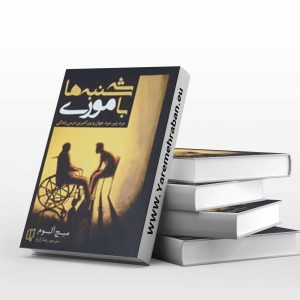
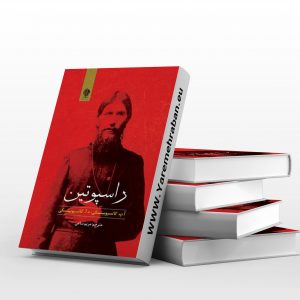

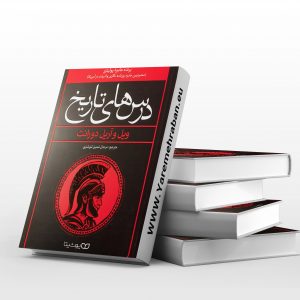



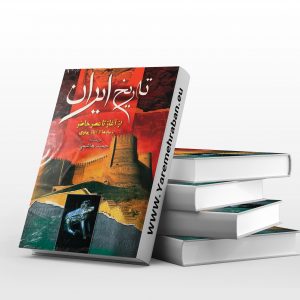
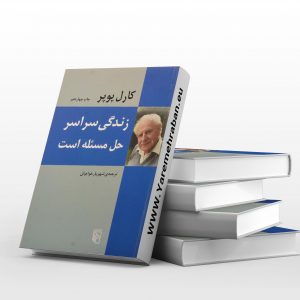
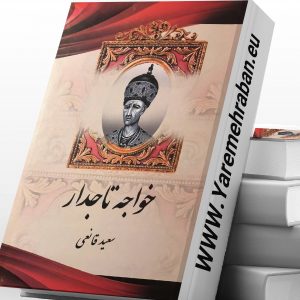
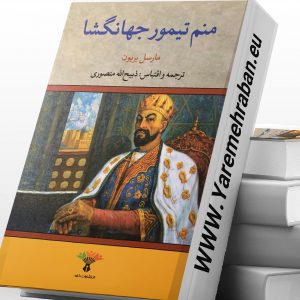
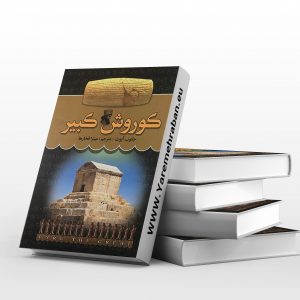
Reviews
There are no reviews yet.